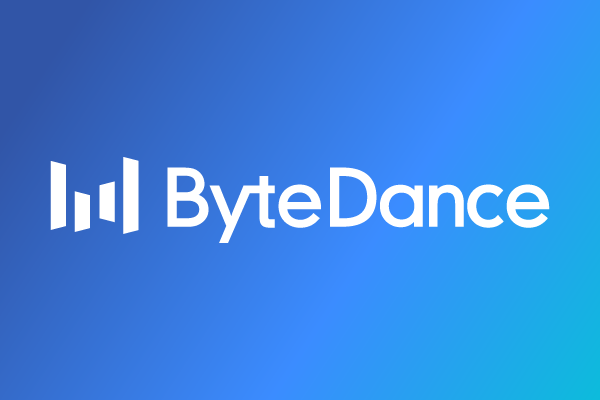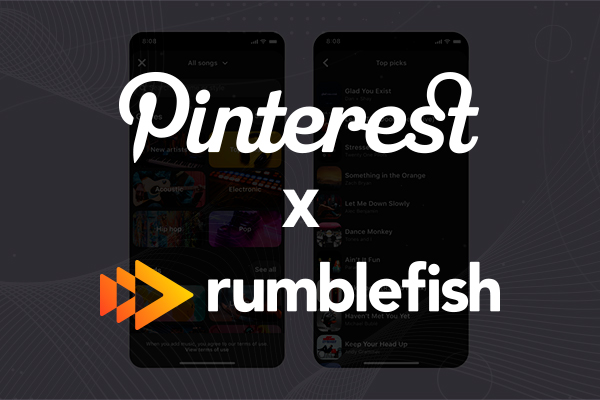Thinking about doing your own music rights administration for your business, application, or platform? We hear that all the time… but usually with a lot of regret, followed by companies telling us that the process was much more complicated and time consuming than they initially anticipated.
The truth is, all sizes of companies, even well-established digital music companies, trust Rumblefish to help them manage licensing, data and royalty services at scale.
Why? Because music rights management is our specialty. It’s all we do, all day every day.
Our services are designed for music distribution companies as well as companies that use music in new and innovative ways.
Digital content powered by music may appear in a variety of places, from apps and SaaS companies to fitness brands with tech products built-in, social media companies, streaming platforms, digital marketing uses, and even metaverse companies. Of course, digital companies understand that the right music is the currency that powers so many immersive digital customer experiences — and yet music rights administration is a discipline in itself.
Whenever recorded musical works are played, whenever royalties are generated, songwriters, composers, publishers, artists, labels, and a whole host of other stakeholders in the music business may have rights. It takes a lot of work to keep track of intellectual property, music data, and the associated royalties.
That said, given the complexity to account for the rights of all of the stakeholders, companies use Rumblefish to help with music data, royalty payments, and licensing.
But just for fun, let’s pretend like you were thinking about doing your own music rights management. So this is purely hypothetical.
What would it actually look like to try to do this yourself?
1. You’d need to speak to *many* different music industry stakeholders depending on your music use.
This could include music publishers, songwriters, record labels, independent artists, performance rights organizations… literally all the stakeholders in the music industry could end up on this list, including anyone in the music world who has rights to the music you want to use.
Keep in mind that you might not know who any of these people are, where they are, or how to find them. Even if you manage to track some of them down, they might not have time to talk to you. After all, why should they help you?
This is where a knowledge-base and relationships are key. And Rumblefish already has relationships and knowledge in place.
2. You’d need to obtain your licenses
There are many different types of licenses depending on how you plan to use music, in what context, and at what scale. There are also many different ways to obtain a license.
For example, if you are not entitled to a statutory, compulsory license, you might choose to negotiate directly with the rights holders. But do you know which road to take? Do you know why? Rumblefish can connect you with parties due to our deep industry relationships.
3. Once you obtain the license, there will be lots of data to manage!
Core to music rights management is managing data. You will need to keep track of all the licenses, all of the song data, as well as any changes or updates that need to be made to them. All of this data would need to live somewhere, and it would need to be updated and maintained regularly.
Here are a few data management considerations:
Managing data about the sound recording that comes from the record labels:
Once you license sound recordings from the record labels, they may provide the audio files to you along with descriptive data. Data such as sound recording title, artist, and ISRC unique identifier for a particular recording of a song, should be included on any commercial release.
Managing data about the composition that comes from the publishers:
Once you license compositions from the music publishers, you may receive descriptive data about those compositions such as the composition title, the songwriter, the music publisher, and their ownership share (which sometimes can be a fractional share of the composition).
To make things more fun, you need to store all this information in a database that is customized for these particular fields of music-related data and keep it all updated as you license additional sound recordings and compositions… and music composition ownership shares change… the data can quickly grow!…
If this is too much to keep track of, contact us HERE and connect with one of our music rights management advisors.
4. Now it’s time for matching. Sounds simple enough, eh?
Now that you have data from the label side (sound recording information) and from the publisher side (composition information), you’d need to perform “Data Linking” or “Data Matching”. This process links the sound recording to the underlying composition
Linking sounds easy…. The composition title will match the sound recording title, right? Well…. there could be many compositions with the same title (all written by different songwriters)! How do you know which one is the underlying composition for a particular sound recording? Selecting the wrong one to link could cause issues as you might not have a license for the correct composition.
With Rumblefish, you can leverage our music database for your data matching needs.
5. Next you get to pay them!
Music rights management doesn’t stop with matching either. There’s another step: payment of music royalties!
Let’s say you’ve figured out who to approach, you have the licenses, the data is well managed, you’ve successfully matched, tracked, and stored the data, your service is rockin’, and you are tracking your usage of music … now it’s time to pay.
Running a proper royalty system means that you need to make sure that you are paying appropriate royalties out to stakeholders in a timely manner.
That would involve having a whole other highly secure enterprise-level payment system in place that can handle large amounts of data quickly and efficiently.
Here are several examples of the things you’d have to build to do this successfully. (This is what we do every day at Rumblefish):
- Program royalty calculation engines
- Set up payee accounts (with tax forms, secure bank account information)
- Ensure enterprise level security to help protect the sensitive payment data
- Scale out your technical infrastructure
- Train a royalties team
- Use relationship management software to handle miles of paperwork
- Program and generate properly formatted usage reports and royalty statements that publishers are familiar with receiving and ingesting into their systems in an automated fashion
- Track royalty advances
- And finally… the technical side of sending the royalty payments themselves
6. What if something isn’t perfect? Those rights holders are going to contact YOU to collect!
That’s right, you’d still have to deal with the publishers and give them a bit of TLC and customer service. We call this “Inquiry management”.
And they will have questions! Things like:
- Where’s my money?
- I don’t understand the report etc…
- Something isn’t right here; can we talk about it?
Inquiry Management is part art, part science. That’s why we handle most publisher inquiries on behalf of our clients.
At Rumblefish, we have an entire team of people dedicated solely to this function. We take care of most of the daily conversations so you can focus on growing your business.
7. You’d have to plan on doing this every day for the rest of the life of your business.
The cycle never ends my friend. If you chose the DIY path, you could be in this for the long haul now.
The last part of music rights management is actually the hardest part: staying consistent.
Showing up every single day and tackling the most complex, difficult, and stressful parts of music rights management is exactly what we do best. And we absolutely love it! We love the creative process and we love supporting it, and we have been doing rights management even before streaming platforms, or even the digital age itself, existed.
Rumblefish Music Rights Management
At Rumblefish, we have the databases, staff, technology, and relationships to offer extensive music rights management.
Just like the pure-play digital music providers, as well as hundreds of other entertainment, fitness, and gaming brands would agree, doing this yourself seems just a bit too complicated or difficult. If so, just fill out the form below and we’ll match you with a music rights management advisor who can help you plan for success with Rumblefish, which has a proven track record of music rights management at scale.










